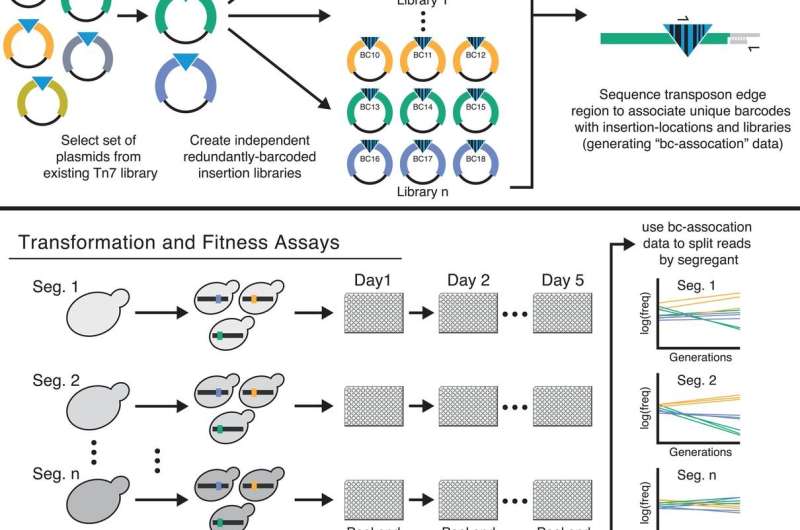October 25, 2019 report
Yeast experiments show fit lineages are less tolerant to deleterious mutations

Bob Yirka
news contributor

A team of researchers with members from Harvard University and one from the University of California San Diego has carried out experiments with yeast that show more-fit lineages are less tolerant to deleterious mutations than are those that are less fit. In their paper published in the journal Science, the group describes forcing a number of mutations into the backgrounds of yeast and what they learned about evolutionary fitness by doing so. Craig Miller with the University of Idaho has published an accompanying in the same journal issue discussing the work by the team.
Evolutionary theory suggests that organisms tend to become better suited (more fit) to the environments they inhabit through natural selection. Members born with a mutation that confers an advantage over others of their kind tend to produce more offspring—over time, those with the genetic advantage crowd out those without it. In this new effort, the researchers sought to learn more about the tradeoff between the capacity for adaptation and the cost of producing offspring that are less fit. To that end, they introduced a wide variety of mutations that they believed to be deleterious into yeast samples to measure their effect on fitness. The idea was to determine which sorts of mutations had the most deleterious effects on the yeast based on their original fitness.
Logic suggests that that fitter specimens would be better suited to handling such mutations, but the researchers found the opposite to be true. In studying the impact of the mutations on the yeast, they found that the more-fit lineages were less tolerant to deleterious mutations than were those that were less fit. The researchers suggest this finding supports the notion that beneficial mutations face diminishing returns.
The researchers found that strains deemed more fit showed lower mean scores, along with higher variance. They suggest the reason this was the case was because a lot of the mutations they introduced had more strongly deleterious effects on faster-growing strains. They suggest their findings indicate that second-order selection for robustness tends to conflict with first-order selection for fitness.
Written for you by our author —this article is the result of careful human work. We rely on readers like you to keep independent science journalism alive. If this reporting matters to you, please consider a (especially monthly). You'll get an ad-free account as a thank-you.
More information: Milo S. Johnson et al. Higher-fitness yeast genotypes are less robust to deleterious mutations, Science (2019).
Journal information: Science
© 2019 Science X Network


















